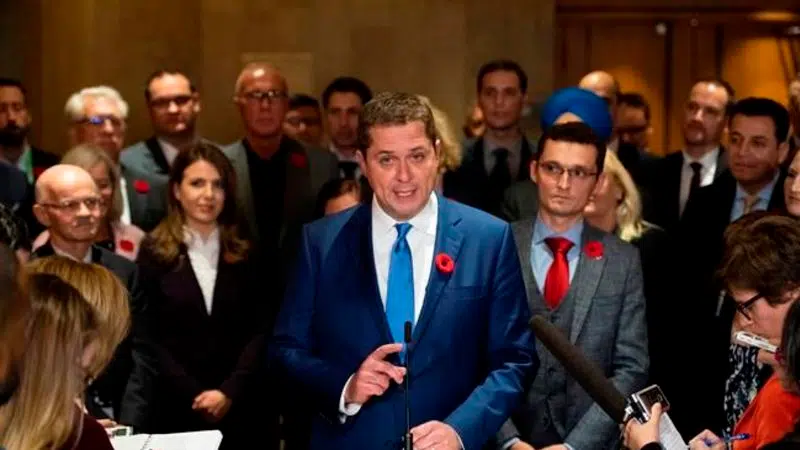
Scheer survives leadership review by MPs, but now must take his case on the road
OTTAWA — Andrew Scheer emerged from a marathon caucus meeting Wednesday, declaring that Conservative MPs are united behind his leadership after they declined to give themselves the power to boot the leader out.
Scheer’s leadership will still, however, face a test of confidence among party members at their biannual convention in April in Toronto. He said he believed that’s where the power to potentially oust him should lie.
“The review as to the leadership of the Conservative Party of Canada is and always will be in the hands of our members,” he said to loud applause from the MPs gathered behind him.
“We are a grassroots party.”


